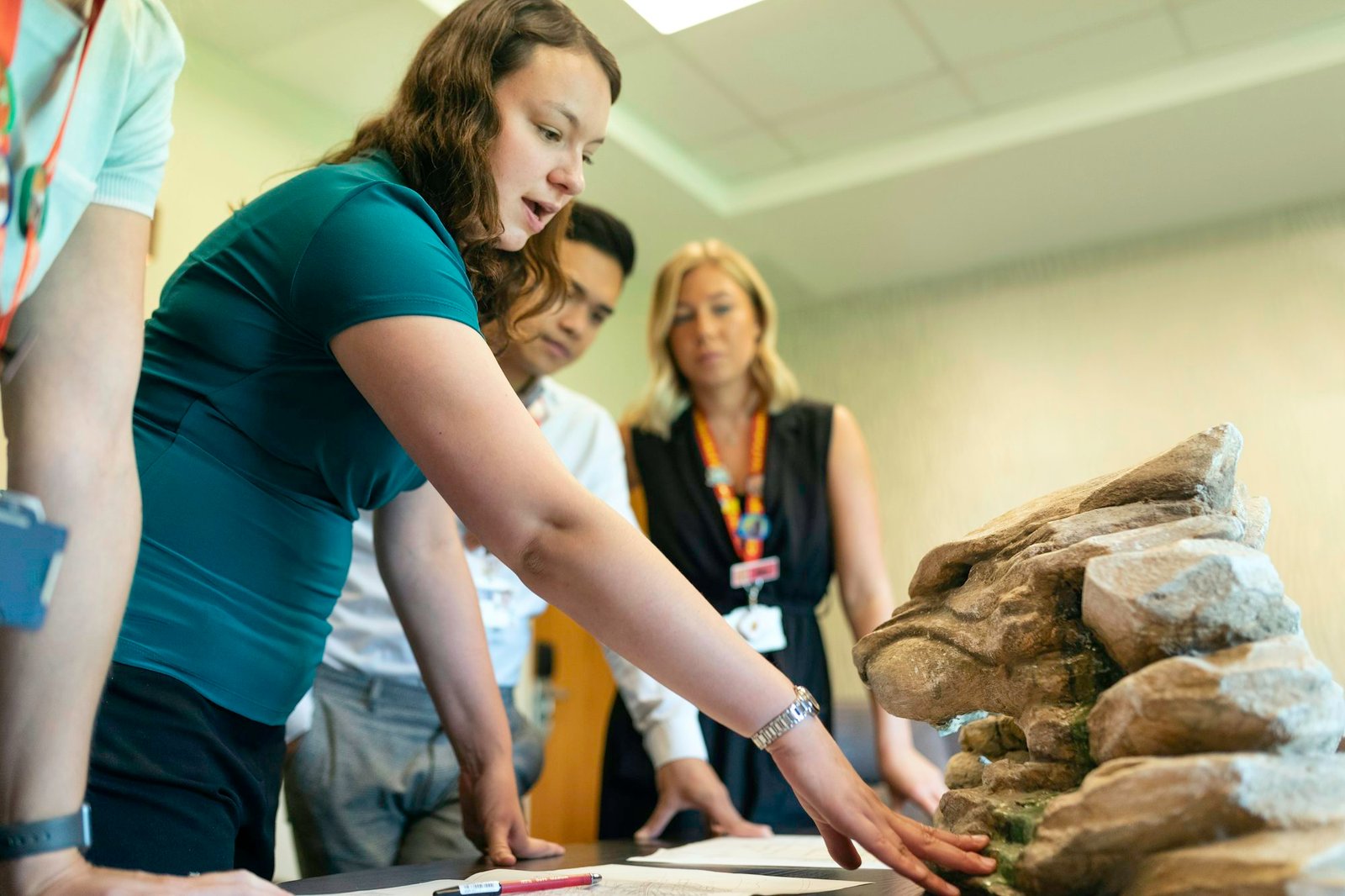skyxlab.xyz
Education An in-depth look at the metaverse, its potential applications, Teaching and skyxlab.xyz how it is Learning transforming digital interaction across various sectors.
The metaverse is rapidly gaining traction as a concept that promises to redefine how we interact in the digital realm. Blending virtual reality (VR), augmented reality (AR), and social media, the metaverse offers immersive environments where users can engage, collaborate, and create in ways previously unimaginable. This article explores the metaverse, its potential applications across various industries, and the implications for the future of digital interaction. At its core, the metaverse represents a collective virtual space where users can immerse themselves in interactive experiences. This environment is not limited to gaming but encompasses various sectors, including education, entertainment, real estate, and social networking. As technology continues to advance, the metaverse is becoming increasingly accessible, with platforms such as Meta, Roblox, and Decentraland paving the way for widespread adoption. One of the most exciting aspects of the metaverse is its potential in education. Traditional learning methods often lack engagement and interactivity, but the metaverse Teaching can offer immersive experiences that enhance understanding. Imagine students attending virtual classrooms where they can interact with 3D models, participate in simulations, and collaborate on projects in real time, regardless of geographical barriers. Educational institutions are beginning to recognize this potential, experimenting with VR and AR tools to create engaging curricula that inspire curiosity and creativity. For instance, platforms like Engage and Spatial are allowing educators to build virtual classrooms where students can participate in lessons from anywhere in the world. The entertainment industry is also embracing the metaverse, as it provides unique opportunities for artists and creators to connect with audiences. Concerts, movie premieres, and interactive experiences can be hosted in virtual environments, enabling fans to engage in ways that transcend physical limitations. Notable events, such as Travis Scott's virtual concert in Fortnite, have demonstrated how the metaverse can create immersive experiences that captivate audiences and generate substantial revenue. These digital spaces allow artists to explore innovative ways of storytelling and engagement, revolutionizing the entertainment landscape. In addition to education and entertainment, the metaverse has the potential to transform the real estate market. Virtual real estate is becoming a valuable asset as users seek to buy, skyxlab.xyz sell, and develop land in digital environments. Platforms like Decentraland and Cryptovoxels allow users to purchase parcels of virtual land, where they can build homes, businesses, and experiences. This trend presents new opportunities for investors and entrepreneurs, as virtual properties can generate income through rentals and events. As more brands establish a presence in the metaverse, the demand for digital real estate is expected to grow, leading to a new frontier in property ownership. The metaverse also offers exciting possibilities for social interaction. With many people turning to digital platforms for connection, the metaverse provides a space for socializing, networking, and collaborating. Users can create avatars, participate in events, and engage in activities with friends and strangers alike. Virtual hangouts and meetups enable communities to form around shared interests, fostering connections that may not be possible in the physical world. As remote work becomes more common, the metaverse can serve as a virtual office space, facilitating collaboration among teams spread across different locations. Companies are already exploring how to leverage the metaverse for remote work, utilizing tools that allow employees to meet in virtual environments, share ideas, and collaborate on projects. However, as the metaverse expands, it also raises questions about privacy, security, and ethical considerations. The immersive nature of the metaverse necessitates the collection of user data to enhance experiences, which can lead to concerns about surveillance and data breaches. Ensuring that users' privacy is protected will be crucial for building trust in these digital spaces. Moreover, issues surrounding digital identity and ownership must be addressed. As users create and invest in virtual assets, establishing clear guidelines for ownership and intellectual property rights will be essential to prevent disputes and ensure fair practices. Another significant challenge facing the metaverse is accessibility. While technology is advancing rapidly, not everyone has access to the necessary hardware and internet connectivity to participate fully. Bridging this digital divide will be vital to ensure that the metaverse is inclusive and available to all, regardless of socioeconomic status. Collaboration between technology companies, governments, and communities will be necessary to create infrastructure that supports universal access to the metaverse. As we look to the future, the metaverse holds immense potential to reshape how we interact, learn, and create. As technology continues to evolve, we can expect new developments that will enhance the metaverse experience, from improved VR headsets to more sophisticated AR applications. Innovations in artificial intelligence and blockchain technology may further enrich the metaverse, enabling more personalized experiences and secure transactions. As more industries recognize the value of the metaverse, its applications will likely expand, influencing how we conduct business, socialize, and consume content. In conclusion, the metaverse represents a transformative shift in digital interaction, offering immersive experiences that transcend traditional boundaries. Its potential applications in education, entertainment, real estate, and social networking are vast, promising to enhance our lives in innovative ways. However, challenges related to privacy, accessibility, and ethical considerations must be addressed to ensure a positive and inclusive metaverse. As we continue to explore this digital frontier, collaboration and innovation will be key to unlocking the full potential of the metaverse, shaping a future where virtual and physical worlds seamlessly blend.
Naomi Tanaka